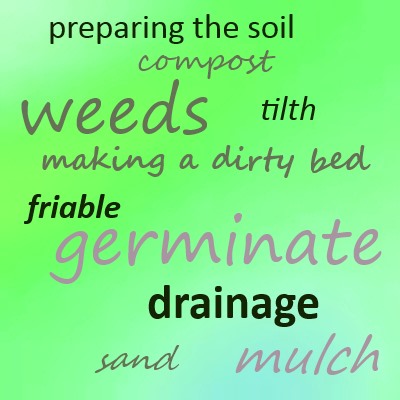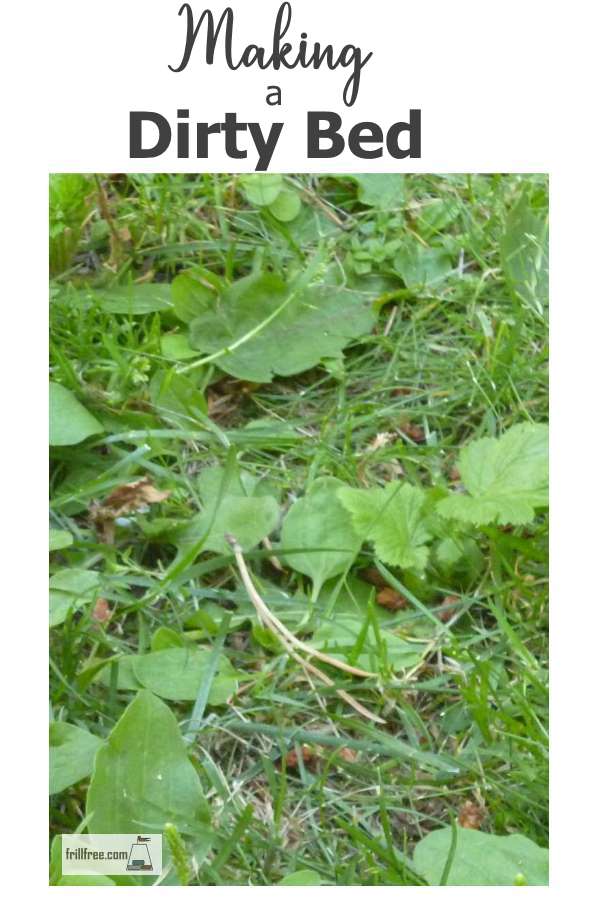- Homesteading
- Methods of Organic Farming
- Making a Dirty Bed
Making a Dirty Bed
It's not as bad as it sounds, honest!
Making a dirty bed is one of the best ways to eliminate weeds right at the start; before you plant your vegetable garden.
Whether you're growing seeds sown right where they will grow, or transplanting vegetable starts, you should know about this way of stopping weeds before they begin to grow.
How do you do this? By allowing them to germinate, of course!
Weed seeds spread by the wind, or by leaving weeds to flower and set seed the previous year; the saying, one years seeding makes seven years weeding is true; not all seeds laid down by the weeds will germinate the following year.
Many can lay dormant for years until the conditions are just right.
So, get those conditions just right, let the seeds germinate, then kill them off by utilizing the weather.

Start making your dirty bed early in the spring; the best time is just before a good spring rain is forecast. The ground can be dug over, and raked out loosely. You'll need a week or so lead time before you want to plant your crop.
Once the rain starts those little weed seedlings popping up, wait until a nice warm day, with good sunshine. Then, rake the soil so that the seedling weeds are uprooted and lay on the surface of the soil, and will bake in the sun.
You may have to repeat this process a couple of times before planting your vegetables, but it's worth the wait; without the competition from the weeds, the vegetables will get going quickly and shade the soil, preventing another crop from germinating.
Alternatively, wait for
the weeds to germinate, then cover the bed completely with black
plastic, and solarize it for a week or two.
This technique is also referred to as 'stale bed'.
One of the biggest advantages is not only the elimination of weeds that will flower and seed themselves right in the bed, but their roots and top growth (minimal as it might be) will provide tilth for the soil.
The many earthworms already present will utilize the holes left by the roots to move through the earth. They'll drag the top growth down into the soil to eat it or let it rot down and produce humus.
I recommend mulching thickly once your crop is up and growing, or you've transplanted it, to keep the area around the plants free of weeds.
So there you have it. Instead of battling weeds all summer, get them gone right from the start and enjoy your weed free garden.















